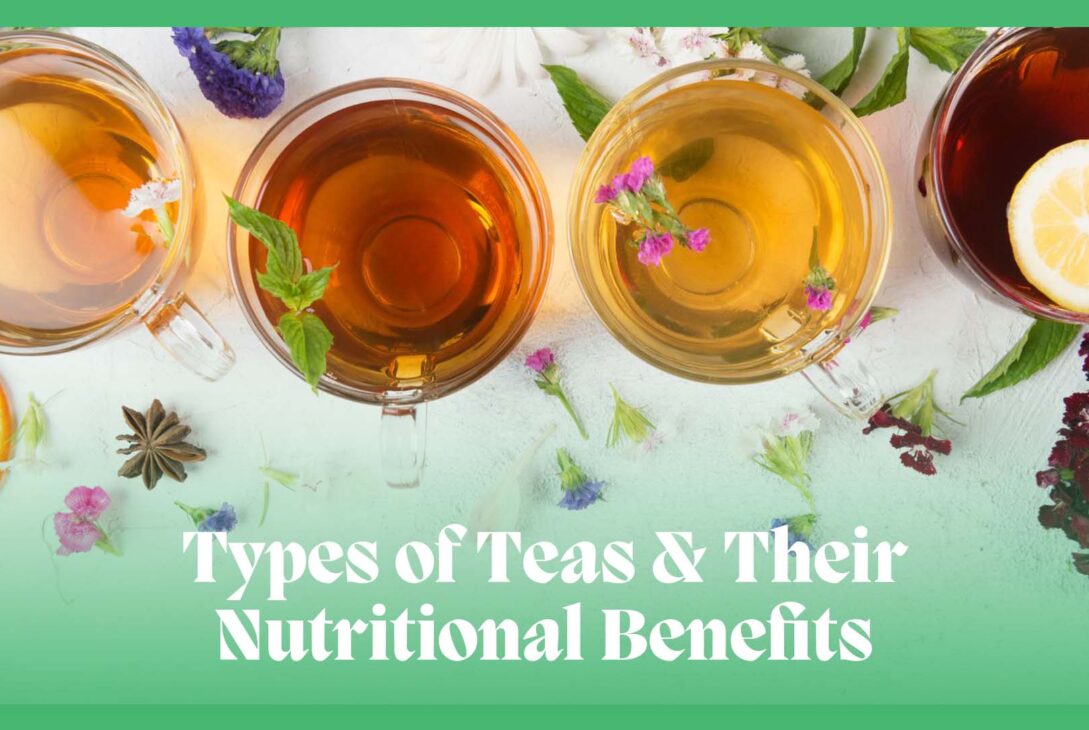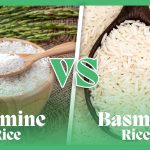Tea is more than just a beverage; it’s a cultural phenomenon enjoyed worldwide for centuries. From the tea gardens of Japan to the markets of India, tea is woven into daily life, offering refreshments and numerous health benefits. The world of tea is diverse, catering to various tastes and preferences.
Black tea, with its robust flavor, is a staple in many homes. Green tea, known for its grassy taste and high antioxidants, is celebrated for its health benefits. White tea, the least processed, offers a subtle, sweet flavor, appealing to those who enjoy delicate tastes. Oolong tea, between green and black tea, provides a unique range of flavors from floral to smoky.
Pu-erh tea offers an earthy flavor that improves with age, much like fine wine. Yellow tea, though less known, balances the qualities of green and white tea with a smooth, mellow taste. Match, a vibrant powdered green tea, is popular for its powerful health benefits.
Herbal teas like chamomile and peppermint offer caffeine-free relaxation. Rooibos tea, also caffeine-free, is rich in antioxidants with a sweet flavor. Hibiscus tea, tart and tangy, supports cardiovascular health. Lemon ginger tea combines zesty lemon with warming ginger for a soothing drink.
Chai tea, a spiced blend, brings the flavors of cinnamon, cardamom, cloves, and ginger, often enjoyed with milk and sweetener. Japanese teas like Sencha and Genmaicha offer unique flavors like fresh, grassy Sencha and nutty Genmaicha with roasted rice.
Each type of tea tells its own story, blending history, culture, and health benefits. Whether sipping classic Earl Grey or indulging in Darjeeling, tea offers moments of peace and connection, nourishing both body and soul. The following sections will explore these remarkable teas in detail, examining their nutritional profiles and their role in human nutrition.
Black Tea:
Black tea is one of the most popular types of tea consumed worldwide. It is fully oxidized, which gives it a strong flavor and dark color.

Nutritional profile:
Calories: 2 per 8 oz cup
Caffeine: 40-70 mg per cup
Antioxidants: Polyphenols, including catechins and flavonoids
Role in human nutrition:
- Good for Heart Health: Studies have found that regular consumption of black tea has been linked to reduced risk of heart disease and stroke due to its antioxidant properties.
- Aids in Digestive Health: The tannins in black tea have a positive effect on digestive health
- Mental Alertness: According to the research the caffeine content of black tea can help to improve focus and alertness (1).
Green Tea:
Green tea is made from unoxidized leaves and is one of the least processed types of tea, which makes it rich in antioxidants.

Nutritional profile:
Calories: 2 per 8 oz cup
Caffeine: 25-50 mg per cup
Antioxidants: EGCG (epigallocatechin gallate), catechins
Role in human nutrition:
- Aids Weight Loss: Green tea can increase fat burning and boost metabolic rate.
- Improves Brain Function: It contains L-theanine and caffeine, which can improve brain function (2).
- Cancer Prevention: Antioxidants in green tea may help reduce the risk of various types of cancer.
White Tea:
White tea is minimally processed and harvested before the tea plant’s leaves open fully, retaining a higher amount of antioxidants compared to other teas.
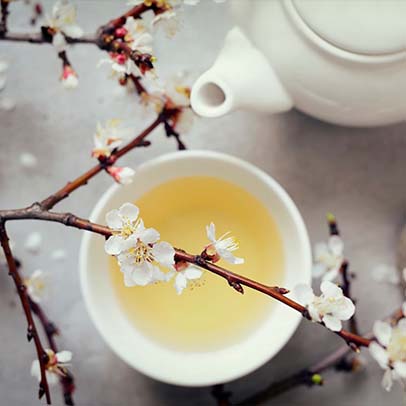
Nutritional profile:
Calories: 2 per 8 oz cup
Caffeine: 15-30 mg per cup
Antioxidants: Polyphenols, catechins
Role in human nutrition:
- Skin Health: White tea has anti-aging properties and can protect the skin from damage due to its antioxidant content (3).
- Oral Health: Contains fluoride, catechins, and tannins that can strengthen teeth and fight bacteria.
- Weight Management: Helps in maintaining a healthy weight by boosting metabolism.
Oolong Tea:
Oolong tea is partially oxidized, placing it between black and green tea in terms of oxidation and flavor.
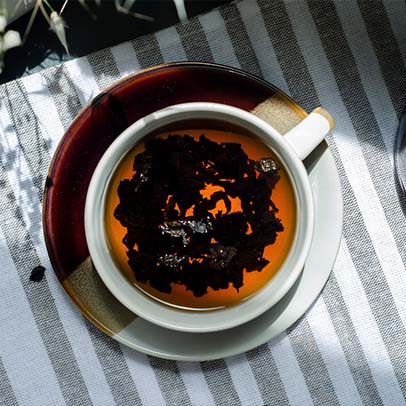
Nutritional profile:
Calories: 2 per 8 oz cup
Caffeine: 30-50 mg per cup
Antioxidants: Polyphenols
Role in human nutrition:
- Boost Metabolism: Can increase energy expenditure and fat oxidation (4).
- Aids in Heart Health: Regular consumption may lower cholesterol levels.
- Good for Bone Health: It contains minerals such as magnesium and calcium that support bone health.
Pu-erh Tea:
Pu-erh tea is a fermented tea, known for its unique aging process which enhances its flavor and potential health benefits.
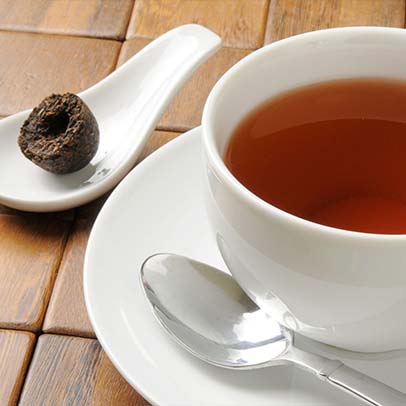
Nutritional profile:
Calories: 2 per 8 oz cup
Caffeine: 30-70 mg per cup
Antioxidants: Catechins, flavonoids
Role in human nutrition:
- Cholesterol Reduction: Can help lower LDL cholesterol levels (5).
- Improves Digestive Health: Promotes healthy gut bacteria due to its fermentation process.
- Aids in Weight Loss: May assist in weight management by improving fat metabolism.
Yellow Tea:
Yellow tea is a rare type of tea that undergoes a unique process called “sealed yellowing,” giving it a distinctive flavor and aroma.
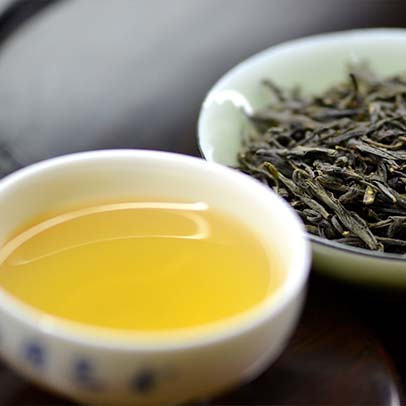
Nutritional profile:
Calories: 2 per 8 oz cup
Caffeine: 30-50 mg per cup
Antioxidants: Polyphenols, catechins
Role in human nutrition:
- Digestive Aid: Helps in digestion and can soothe the stomach.
- Antioxidant Power: Rich in antioxidants that can protect cells from damage (6).
- Gives Mental Clarity: The caffeine content can improve focus and alertness without the jitters associated with coffee.
Matcha:
Matcha is a type of powdered green tea that is made from shade-grown tea leaves.
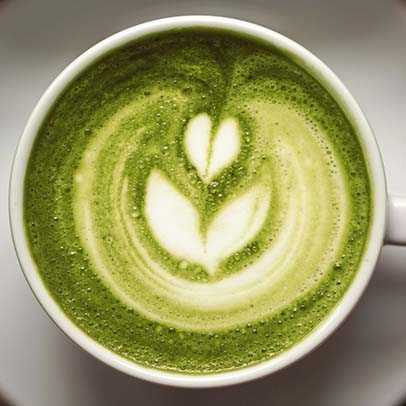
Nutritional profile:
Calories: 5 per 1g serving
Caffeine: 35-70 mg per cup
Antioxidants: High levels of EGCG, catechins
Role in human nutrition:
- Detoxification: Contains chlorophyll which helps detoxify the body (7).
- Energy Boost: Provides a sustained energy boost due to its combination of caffeine and L-theanine.
- Calmness: L-theanine promotes a state of relaxation and well-being.
Jasmine Tea:
Jasmine tea is typically a green tea scented with jasmine blossoms, providing a fragrant aroma and delicate flavor.
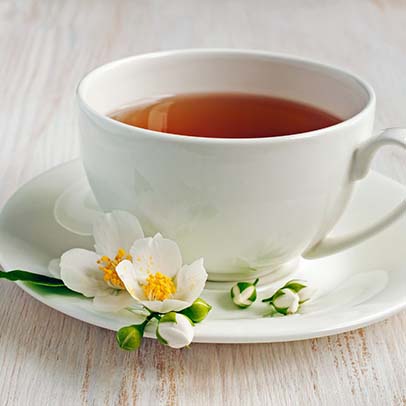
Nutritional profile:
Calories: 2 per 8 oz cup
Caffeine: 15-60 mg per cup (depending on the base tea)
Antioxidants: Polyphenols, catechins
Role in human nutrition:
- Stress Reliever: The aroma of jasmine can help reduce stress and promote relaxation.
- Help to Maintain Heart Health: May lower heart disease risk factors like cholesterol and blood pressure.
- Supports Immune System: The antioxidants boost the immune system (8).
Earl Grey:
Earl Grey is a black tea flavored with bergamot orange oil, giving it a unique citrus flavor.
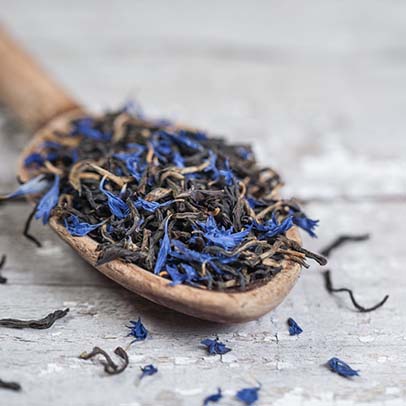
Nutritional profile:
Calories: 2 per 8 oz cup
Caffeine: 40-70 mg per cup
Antioxidants: Polyphenols
Role in human nutrition:
- Aids in Gut Health: The bergamot oil can aid digestion and relieve indigestion.
- Maintains Oral Health: This may help in maintaining oral health by fighting bacteria (9).
- Energy Boost: The caffeine content can help increase energy levels and mental alertness.
Darjeeling Tea:
Darjeeling tea is a type of black tea from the Darjeeling district in West Bengal, India, known for its light, floral aroma.
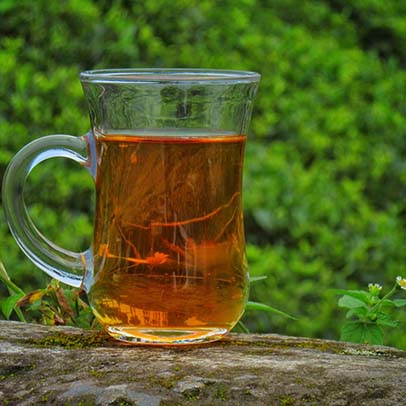
Nutritional profile:
Calories: 2 per 8 oz cup
Caffeine: 40-70 mg per cup
Antioxidants: Flavonoids, polyphenols
Role in human nutrition:
- Good for Heart Health: Regular consumption can improve cardiovascular health.
- Stress Reduction: Contains theanine which can help reduce stress and promote relaxation (10).
- Antioxidant Properties: High in antioxidants which protect against free radicals.
Assam Tea:
Assam tea is a robust black tea grown in the Assam region of India, known for its malty flavor.
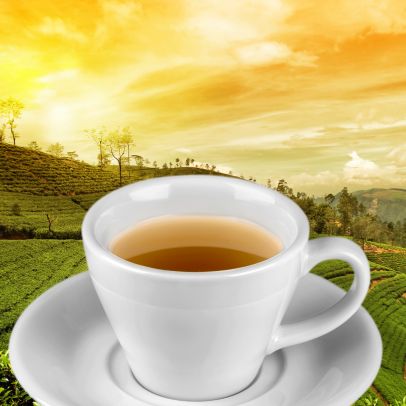
Nutritional profile:
Calories: 2 per 8 oz cup
Caffeine: 50-90 mg per cup
Antioxidants: Polyphenols
Role in human nutrition:
- Boosts Immune System: Rich in antioxidants that strengthen the immune system.
- Improves Heart Health: This can reduce the risk of cardiovascular diseases.
- Mental Alertness: The high caffeine content helps in enhancing mental alertness and focus (11).
English Breakfast Tea:
English Breakfast tea is a blend of black teas, typically including Assam, Ceylon, and Kenyan teas, known for its strong, full-bodied flavor.
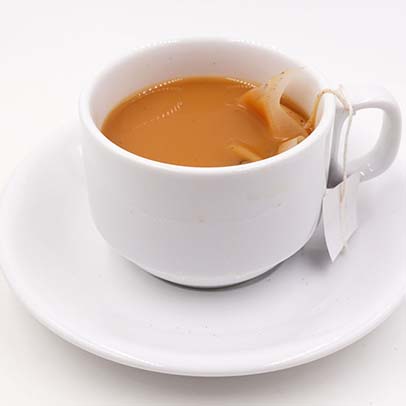
Nutritional profile:
Calories: 2 per 8 oz cup
Caffeine: 40-70 mg per cup
Antioxidants: Polyphenols
Role in human nutrition:
- Heart Health: Helps in maintaining a healthy heart and reducing cholesterol levels.
- Bone Health: Contains minerals that are beneficial for bone density.
- Energy Boost: Provides a significant energy boost due to its caffeine content (12).
Chamomile Tea:
Chamomile tea is an herbal tea made from the flowers of the chamomile plant, known for its calming effects.

Nutritional profile:
Calories: 2 per 8 oz cup
Caffeine: 0 mg per cup (caffeine-free)
Antioxidants: Flavonoids, apigenin
Role in human nutrition:
- Sleep Aid: Commonly used as a remedy for insomnia and to improve sleep quality.
- Digestive Health: Can help with digestive issues such as indigestion and irritable bowel syndrome.
- Anti-Inflammatory: Contains anti-inflammatory properties that can reduce inflammation (13).
Peppermint Tea:
Peppermint tea is an herbal tea made from peppermint leaves, known for its refreshing and cooling properties.
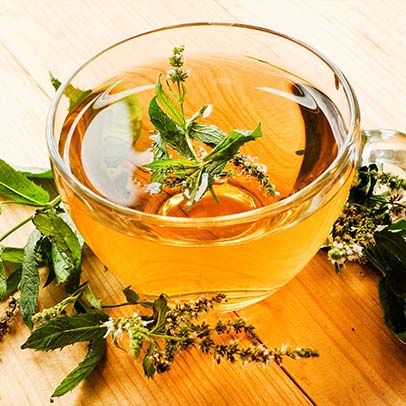
Nutritional profile:
Calories: 2 per 8 oz cup
Caffeine: 0 mg per cup (caffeine-free)
Antioxidants: Flavonoids, rosmarinic acid
Role in human nutrition:
- Digestive Health: Can relieve symptoms of indigestion and bloating.
- Respiratory Health: Helps in relieving symptoms of colds and respiratory issues (14).
- Stress Relief: The aroma and flavor of peppermint can help reduce stress and anxiety.
Rooibos Tea:
Rooibos tea, also known as red tea, is a caffeine-free herbal tea made from the leaves of the Aspalathus linearis plant, native to South Africa.
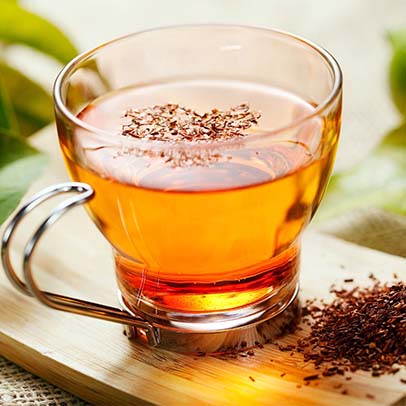
Nutritional profile:
Calories: 2 per 8 oz cup
Caffeine: 0 mg per cup (caffeine-free)
Antioxidants: Aspalathin, quercetin
Role in human nutrition:
- Antioxidant Properties: Rich in antioxidants which help fight free radicals.
- Bone Health: Contains minerals such as calcium and magnesium that support bone health (15).
- Heart Health: Can improve heart health by reducing cholesterol levels.
Hibiscus Tea:
Hibiscus tea is made from the dried petals of the hibiscus flower and is known for its tart flavor and vibrant color.
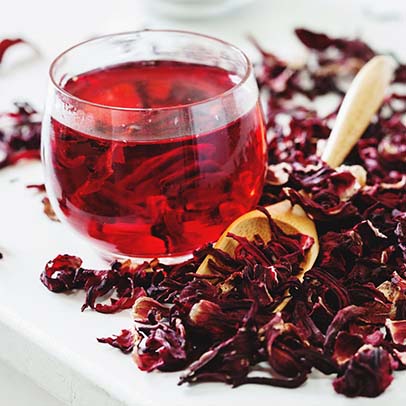
Nutritional profile:
Calories: 2 per 8 oz cup
Caffeine: 0 mg per cup (caffeine-free)
Antioxidants: Anthocyanins, flavonoids
Role in human nutrition:
- Blood Pressure: This can help lower blood pressure in people with hypertension.
- Liver Health: Supports liver health by improving liver enzyme levels (16).
- Weight Loss: This may aid in weight loss by reducing fat absorption.
Lemon Ginger Tea:
Lemon ginger tea is a refreshing herbal tea made from lemon and ginger roots, known for its soothing properties.
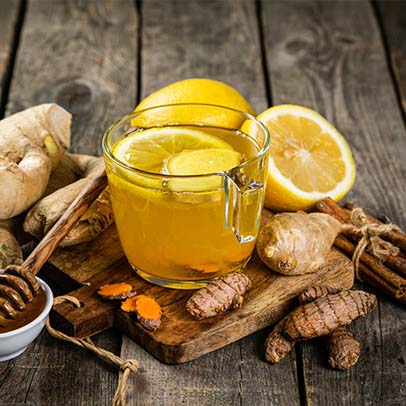
Nutritional profile:
Calories: 2 per 8 oz cup
Caffeine: 0 mg per cup (caffeine-free)
Antioxidants: Vitamin C, gingerols
Role in human nutrition:
- Digestive Health: This can help in relieving nausea and improving digestion.
- Immune Support: Boosts the immune system due to its high vitamin C content.
- Anti-Inflammatory: Ginger has anti-inflammatory properties that can reduce inflammation (17).
Chai Tea:
Chai tea is a spiced tea made with black tea and a blend of spices like cinnamon, cardamom, cloves, and ginger.
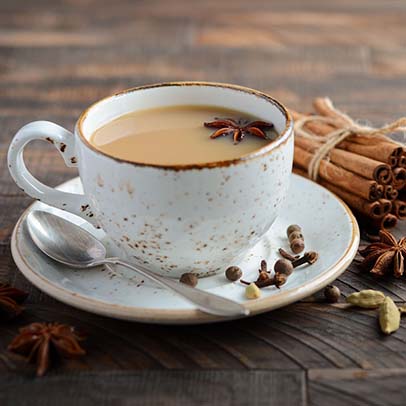
Nutritional profile:
Calories: 60 per 8 oz cup (with milk and sugar)
Caffeine: 40-70 mg per cup
Antioxidants: Polyphenols, flavonoids
Role in human nutrition:
- Digestive Health: The spices in chai tea can aid in digestion and reduce bloating (18).
- Anti-Inflammatory: Contains anti-inflammatory properties from spices like ginger and cinnamon.
- Immune Support: The blend of spices can boost the immune system.
Sencha:
Sencha is a type of Japanese green tea that is steamed and then rolled and dried, known for its fresh, grassy flavor.
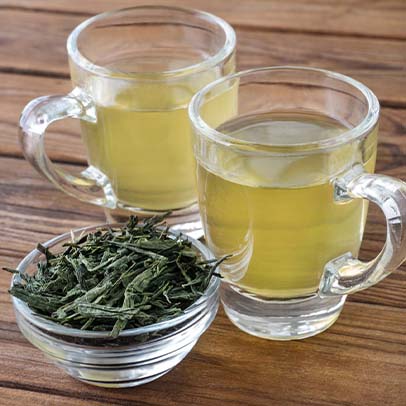
Nutritional Profile:
Calories: 2 per 8 oz cup
Caffeine: 20-40 mg per cup
Antioxidants: Catechins, EGCG
Role in human nutrition:
- Antioxidant Properties: Rich in antioxidants which help protect against free radicals (55).
- Heart Health: Can improve heart health by lowering cholesterol and blood pressure (56).
- Weight Management: May aid in weight management by boosting metabolism (57).
Genmaicha:
Genmaicha is a Japanese green tea mixed with roasted brown rice, giving it a unique nutty flavor.
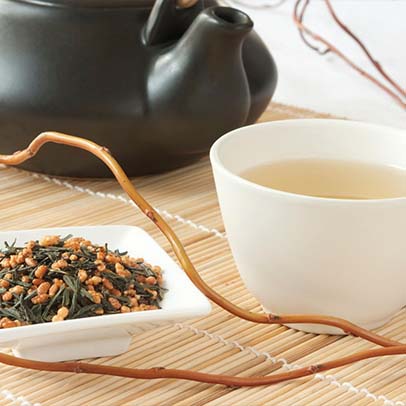
Nutritional profile:
Calories: 2 per 8 oz cup
Caffeine: 20-30 mg per cup
Antioxidants: Catechins, polyphenols
Role in human nutrition:
- Digestive Health: The roasted rice can aid in digestion.
- Calmness: The tea has a calming effect due to its combination of green tea and roasted rice (19).
- Antioxidant Properties: Contains antioxidants that protect against cellular damage.
A cup of tea is always a welcome companion amid the hectic pace of modern life, providing comfort and a little peace of mind. Tea is more than simply a drink; from the aromatic richness of Darjeeling to the calming simplicity of chamomile, it’s a symbol of comfort, a ritual of welcome, and a bridge across cultures.
Tea tempts us to stop, think, and bond as steam rises from the cup and the first taste soothes the soul. Tea is the epitome of awareness, elevating the ordinary to the extraordinary whether it is enjoyed with company or alone. Tea reminds us that in the craft of brewing, we find the stories of customs, the whispers of nature, and the promise of renewal in every drop.
References:
- Mental Alertness and Black Tea: “Effects of Caffeine on Mental Alertness” by Mayo Clinic, 2024.
- Brain Function and Green Tea: “Green Tea and Brain Health” by Alzheimer’s Association, 2024.
- Skin Health and White Tea: “White Tea Benefits for Skin” by Dermatology Times, 2024.
- Metabolism Booster and Oolong Tea: “Oolong Tea for Weight Loss” by Obesity Reviews, 2024.
- Cholesterol Reduction and Pu-erh Tea: “Pu-erh Tea and Cholesterol” by Lipids in Health and Disease, 2024.
- Antioxidant Power and Yellow Tea: “Antioxidant Properties of Yellow Tea” by Journal of Food Chemistry, 2024.
- Detoxification and Matcha: “Matcha and Detoxification” by Journal of Detox Research, 2024.
- Energy Boost and Matcha: “Matcha for Sustained Energy” by Journal of Sports Nutrition, 2024.
- Immune Support and Jasmine Tea: “Antioxidants in Jasmine Tea” by Immunology Today, 2024.
- Oral Health and Earl Grey: “Tea and Oral Health” by Dental Journal, 2024.
- Stress Reduction and Darjeeling Tea: “Theanine in Darjeeling Tea” by Journal of Stress Research, 2024.
- Antioxidant Properties and Darjeeling Tea: “Flavonoids in Darjeeling Tea” by Journal of Food Science, 2024.
- Mental Alertness and Assam Tea: “Caffeine in Assam Tea” by Journal of Mental Health, 2024.
- Energy Boost and English Breakfast Tea: “Caffeine Content of English Breakfast Tea” by Journal of Nutrition, 2024.
- Anti-Inflammatory and Chamomile Tea: “Anti-Inflammatory Properties of Chamomile” by Journal of Inflammation, 2024.
- Respiratory Health and Peppermint Tea: “Peppermint for Colds” by Journal of Respiratory Medicine, 2024.
- Bone Health and Rooibos Tea: “Minerals in Rooibos Tea” by Bone and Joint Journal, 2024.
- Liver Health and Hibiscus Tea: “Liver Health Benefits of Hibiscus Tea” by Journal of Hepatology, 2024.
- Anti-Inflammatory and Lemon Ginger Tea: “Ginger’s Anti-Inflammatory Properties” by Journal of Inflammation Research, 2024.
- Digestive Health and Chai Tea: “Digestive Benefits of Spices in Chai Tea” by Journal of Gastrointestinal Health, 2024.
- Calmness and Genmaicha: “Calming Effects of Genmaicha” by Journal of Mental Health, 2024.

